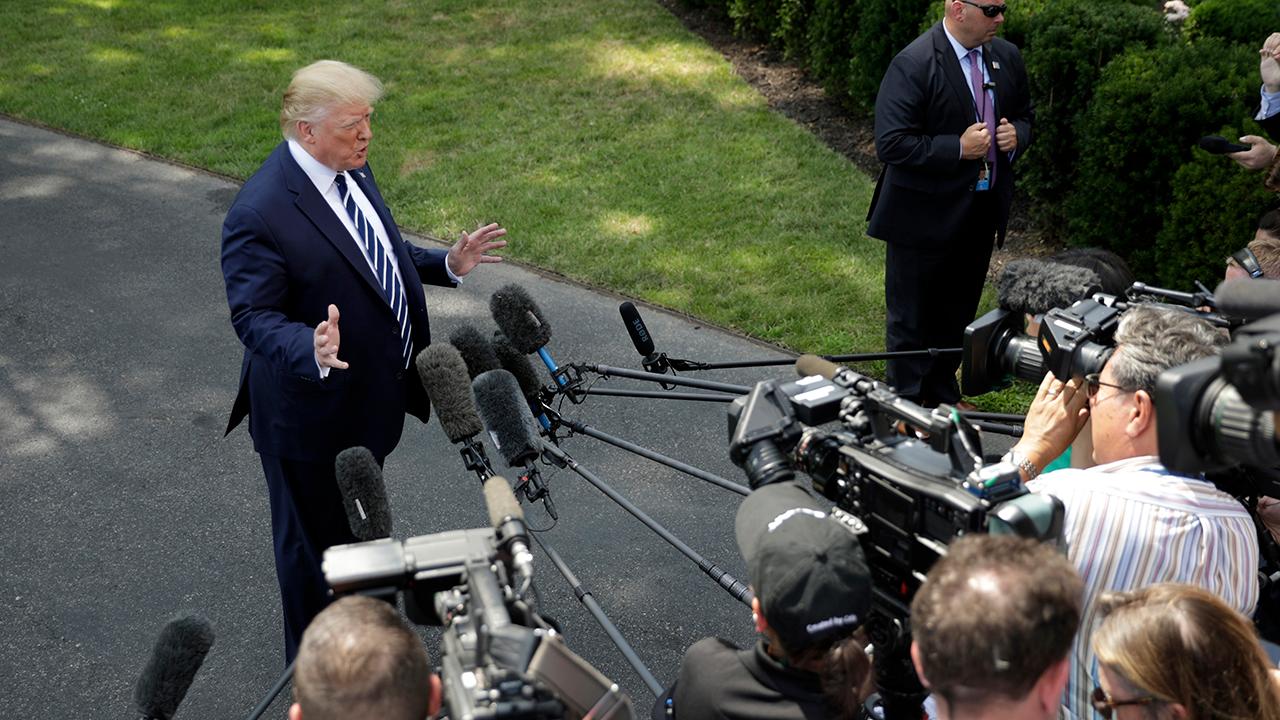Trump gives US farmers new round of funds as trade war cushion
The Trump administration on Thursday unveiled details about a $16 billion aid package to help farmers caught in the crosshairs of the U.S.-China trade war.
The Agriculture Department, which first rolled out the aid package in May, said the payments will be made in three installments over the next six months. If warranted, the second tranche will be made to farmers in November, and the third in January. Farmers will receive the first payment in mid-to-late August.
Payments will be determined based on a farm’s size and location, with rates ranging from $15 to $150 per acre, depending on the trade war’s impact in that area.
The subsidies come as U.S. negotiators prepared to head to China for in-person trade talks next week as the world’s two largest economies attempt to strike a deal. Negotiations collapsed in May, after President Trump accused Beijing of reneging on a deal.
During a meeting in Osaka, Japan for the G20 summit, Trump and Chinese President Xi Jinping to a 90-day tariff ceasefire in the year-long conflict, which has rattled financial markets and threatened to slow economic growth. At the time, Trump said China promised it would “immediately” start buying American farm products; however, no large-scale purchases have taken place yet.
Farmers have been one of the biggest casualties of the trade war. China is the biggest buyer of U.S. soybeans, importing more than $12.4 billion worth of the oil seed in 2017, according to the Peterson Institute for International Economics. Retaliatory tariffs by China resulted in U.S. soybean exports to China falling by more than 80 percent with Brazil and Argentina supplying China instead.
Last year, as a result of the tariffs, soybeans in storage totaled about 3.74 billion bushels, up 18 percent from the prior year, according to data from the USDA.
This marks the second aid package for farmers. Last July, the Trump administration announced a $12 billion farm aid package -- including $4.7 billion in direct payments to farmers -- to help shield them from the effects of global trade spats with China, Mexico, Canada and the European Union. The bulk of the payments went to soybean farmers, which drew some flak.




















